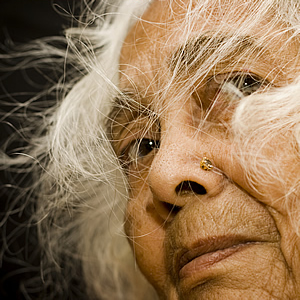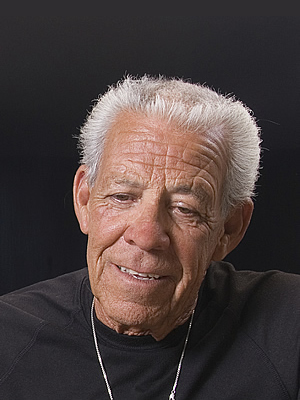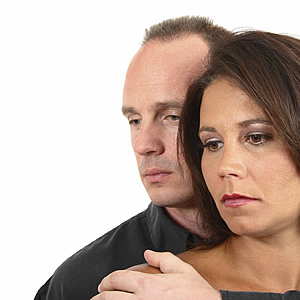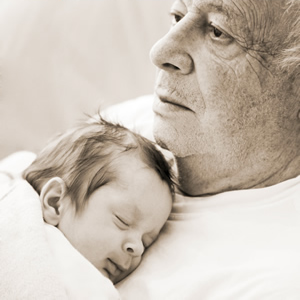People of any age can turn to self-injury, it isn’t a ‘teen thing’.
 Before discussing adult self-injury, we should first clarify what the word ‘adult’ might mean. Generally it might refer to age, and for the most part this article is aimed towards people who are older in years. But ‘adult’ can also relate to responsibility, and at LifeSIGNS we are only too aware that there are many younger people who live very adult lives, and who face responsibilities and challenges far beyond their years. So whatever your age, if you consider yourself to be living an adult life, then these words are for you.
Before discussing adult self-injury, we should first clarify what the word ‘adult’ might mean. Generally it might refer to age, and for the most part this article is aimed towards people who are older in years. But ‘adult’ can also relate to responsibility, and at LifeSIGNS we are only too aware that there are many younger people who live very adult lives, and who face responsibilities and challenges far beyond their years. So whatever your age, if you consider yourself to be living an adult life, then these words are for you.
We hope by now we’ve managed to get the message across that self-injury isn’t a ‘teen thing’, and that people of all ages might rely on self-injury in order to cope. While younger and older people share many of the same challenges in life and with their self-injury, there are also different difficulties to face by people at different stages in their life.
 Perceptions
Perceptions
Because self-injury is often perceived as something ‘young people’ do, older adults can feel that it is something they should have ‘grown out’ of. These feelings can be even more difficult when an older person has turned to self-injury for the first time, rathe than discovering self-injury in their youth.
 The media
The media
Although increasingly willing to raise awareness about self-injury, the media still focus on young people far too much. Even television programmes that include a self-injury storyline either tend to be programmes aimed at young people, or focus on a young person self-injuring. This sends out an inaccurate message, and increases feelings of isolation in older people who self-injure.
 Less help
Less help
If you are older, it might feel that there are fewer organisations out there that can help you. There seems to be a lot of mental health and support related organisations that cater to people under 25; but if you’re over 25 it can be more difficult to find somewhere that you feel you ‘belong’. Often, funding for projects and support services is literally ring-fenced for the government’s or sector’s definition of ‘young people’, meaning that organisations are more likely to get funding / budgets if they develop services for young people.
Resources, funding, and the attitudes of some healthcare professionals, may make it more difficult for older people to obtain the professional help they need.
Young adults, once they hit a certain age, may find they lose vital support and resources that they had been relying on.
 Friends and loved ones
Friends and loved ones
Friends / loved ones of adults may be less likely to be educated surrounding the subject of self-injury, making it more difficult for an adult to bring up the subject with loved ones.
Also, whereas young people are encouraged to talk about their self-injury with parents and loved ones, adults have to consider just who they can turn to.
 Responsibilities
Responsibilities
Adults, in general, have more responsibilities than young people. Whereas young people are usually the ones who are cared for, quite often adults find that they are only ‘carers’ and are not ‘cared for’ themselves. This not only means that they may receive less support, but it also means they have a responsibility to maintain their caring roles, while attempting to also care for themselves.
When a young person finds themselves in a caring role, the burden can be even greater. They are at a time of their lives when they are supposed to be the one being cared for, and yet while their friends might be living the ‘normal’ life that young people need, they find they are forced to take on adult responsibilities. This is damaging not only because they tend to miss out on the ‘fun’ side of youth necessary for emotional balance and wellbeing, but also because they don’t yet have the life experience needed to cope with such responsibilities.
This is also true for young people who although may not have to care for others, neither are they cared for themselves. Some young people are left to fend for themselves, without the support, nurturing and guidance necessary for emotional balance, growth and wellbeing. It’s not surprising that life can feel overwhelming.
Shame and secrecy
Considering all these matters, shame and secrecy, while common in anyone who self-injures, may be even more burdensome for older people.
 Time
Time
Adults who are juggling careers / families / finances may have less time for themselves than some younger people, making it more difficult for them to engage in hobbies and activities that can enhance health and happiness and provide much needed distraction.
Similarly, young people forced to cope with adult responsibilities will not have the time they need for themselves. They may have to care for others, or they may have to juggle school with a job and household responsibilities. We don’t mean the usual responsibilities that a young person might expect, such as household chores, helping care for younger sibblings occasionally, or working to earn money for themselves. We’re talking about people who run their households, or are the sole carer for another person, or who are forced to work in order to financially support others. These people are far less likely to have the time they need to care for themselves.
The feelings of loneliness, isolation and lack of time can be even more enhanced for young people in these situations, because they are only too aware that their lives are not the norm, and that their peers are leading a far more care-free life.
 Drivers
Drivers
Because of their increased life experience and more complex daily lives, adults (or young people living with adult responsibilities) may have a wider range of ‘drivers’ that could lead to self-injury.
How we can help
Whatever your age or responsibilities, you are not alone. People of all ages and in all kinds of circumstances turn to self-injury in order to cope. And everyone deserves help and support.
LifeSIGNS is a fully inclusive organisation and our members range from young teenagers to older people who have retired. Our resources are written for ‘people’ who are affected by self-injury, and we offer guidance and support for everyone.
Whether you need advice for moving away from self-injury, distraction techniques, hiding scars, obtaining professional help, talking to loved ones, getting through the urge to self-injure, or just somewhere to talk about the things that are going on your life, we are here for you.
We are constantly looking to improve and increase the resources we offer to people who self-injure. So whether you’re an adult in years, or a young person living an adult life, we’d appreciate hearing from you. If you’d like to share your own personal story with our members, or if you have suggestions for ways in which we could improve our resources to help more people like you, or if you’d like to challenge or discuss any of the points raised in this article, then please do contact us.

166 Comments
Melissa
March 10, 2017I initially started to self harm in my late teens. I was sexually abused. Like several on here, I suffered through an abusive marriage as well. I havent self harmed in several years… until a week ago. Why come here now? Today my boyfriend saw the cuts on my legs. He blamed himself. I dont know how to explain to him that this is about me and my past, not him.
V
March 9, 2017I’m almost 30 and started self harming as a teenager. Recently though the urge has been returning, it’s like an itch just begging to be scratched and I know the relief though temporary will be instant which lately has just become too difficult to resist. I have one friend who knows I’m far too embarrassed to admit to anyone else that I still occasionally return to this habit to cope when life just feels too much. Reading the stories of others here has been comforting to realise I’m not the only person my age who continues to have these struggles.
Wedge
March 8, 2017Jess, it sounds like you’re under a lot of stress, and everyone here understands how that might be.
Can I ask you to talk to someone about what’s going on at work? Are you drinking alone? Is that something that might concern you?
Think about the friends you can talk to about life (you don’t have to talk about self harm). Consider getting counselling for a few weeks. Stress damages the mind and body and is a serious health risk. Your self-harm indicates that something is not going well for you since christmas.
Please get the help and support you need and deserve now, rather than waiting years like many of us did.
Jess
March 7, 2017I’m not sure if this is the right place to comment, but as a 41 year old I’d never self harmed until just before Christmas. I hurt myself, mostly, when I have had a drink and am thinking about work. I know better. I can’t tell anyone.
W
February 21, 2017My therapist suggested this site today … I am 61… I never thought this would be an issue in my life … as an abused child and adult living with an abusive spouse, I guess I just wanted to stop the emotional pain and actually “see” a reason for pain … there is so much much more to it … but having just seen a few pages here, I had to thank you for this site and I feel as if I will find help here
Wedge
February 19, 2017Denise
Is your psychiatrist also a psychologist? Are you talking to him for 50 minutes a week? If you’re in counselling with him, can I just say that it’s common for things to seem worse while you address your problems. When you shine a light on the dark parts of yourself it’s bound to be hard. But as you make progress, things can become better, so please stick with the therapy for as long as it’s useful.
Also, you don’t have to talk about self-harm itself – after all, it’s the underlying issues that drive you to self-harm that need addressing. Once you feel more in control you can let go of self-harm and rely on other ways of coping.
Kori
February 19, 2017I’m just about 30 I haven’t self harmed in 6 years(started when I was a teen). I was just laying in bed crying and the urge hit me. I thought I was alone and should’ve “grown out of it”until I read these. I’m glad to know I’m not the only adult with these feelings. It really does make me feel better when I do it. Even if it is a short amount of time. I’m not going to do it forever. Just this last time.
Denise
February 19, 2017As a teenager I self-harmed very briefly. Now I am 44 and have started to self harm again. Following bad reactions to medication for anxiety and depression … and finding CBT and meditation just not helping enough. It give me such relief. I have a psychiatrist … but going only seems to make things worse sometimes. He does not know … and I doubt I will ever tell him. I just want control again. And self-harm gives me that.
Cissy B
February 4, 2017Reading these, I feel less isolated knowing I am not the only one. I’m 53, and despite therapy over the years, I have now been written off by my GP and Mental Health Services. I’m on the official mental health scrap heap. As you can imagine, this fuels my feelings of self loathing.
mons
February 1, 2017It is my only way out. I do try and talk to my doctor but I am not good at expressing myself. I’m nearly 50 and a waste of space – I’m disabled – difficulty walking.
Meg
April 25, 2015I have been self harming since 2005 with a short break and now I have been for the past 6 months. I know I can turn to the “coping strategies” but when I do it it’s part of my nighttime routine. I don’t have to have an urge I just do it and it’s very habit-forming which is quite scary. I know eventually I will stop but not anytime soon. A big part of the process for me was writing a letter to my self harming as a friend. I would recommend this to anyone who is willing to try.
Wedge
April 27, 2015Good idea, Meg. Writing stuff down can be very relieving. Also, if it’s a night time ritual for you, you could consider changing your ritual just a little each night, so that over time it becomes something else. Try our ‘everything but‘ page for an example.
Wedge
April 21, 2015Caroline, I hope you choose to talk to someone soon. There are groups in cities and towns for women who have suffered like you, and so you’d all have an understanding of each other.
caroline
April 20, 2015I self harmed in 2001. I was abused as a kid. I did go to the police, but… Now I’m middle-aged and I’m just going through PTSD again and the urge to self harm is back. i never told anyone else about the abuse for the fear of them hurting me in someway.
Wedge
April 15, 2015We hope our ‘Helping you‘ section can give you some ideas.
It’s something about managing the self-injurious behaviour (reducing reliance) while creating alternative coping strategies.
Further, it’s about understanding the underlying drivers behind your self-injury. From that understanding, you have to create change – reduce the stress, change parts of your life.
If you’d like to talk more, please join our Support Forum.
Sky Anne
April 15, 2015I am a mum to 4 young kids, in my thirties. I had a breakdown about 18 months ago and it was then I started self harming. Something I had never done before. Now it is a way I regularly cope and I can’t seem to stop. My kids ask what the marks are and I just say it was the dog. Other people think it’s teenage behaviour and that I’m seeking attention. I’m not, in fact I have even bought a large watch to cover it. How do I stop coping in this way?
Ian
April 12, 2015Hi, I recently started to cut myself. I lost one job because of the scars and had the police come into my house to check up on me. I have been seeing a therapist for eight months or so, all good, start tomorrow with another job, but have to wear long trousers and sleeves to cover things up. I’m in my late 40s and fairly successful in my career, but have depression, anxiety, hepatitis etc. All through alcohol. I am getting through all of this, as I live on the other side of the world to my family, here with no partner or friends, but, I had one bad week. Not two, three etc. So all of you reading this, it will take time, embarrassment etc. You have to deal with it in your own way. As they say “one day at a time”. Best of luck for all of you with this problem, Ian.
Gilli
March 28, 2015You certainly aren’t alone. I am 41 and over the past 23 years have lived with the urge for a quick release. But these pages help. Someone is out there who cares. They may not be face to face but it’s so good to not feel judged here.
I’m here tonight because things are just so tough at the moment… But im surfing the urge…
jo
March 27, 2015hi im 42yrs old and have been selfinjurying since early teens, i tend to hurt myself when having a drink, im messed up with my sexuality, im gay but cant come out. i get so low and need to hurt myself to feel relief if thats what you can call it. i can type down how i feel and my problems but cant seem to face someone and express myself, typing this down and talking on the web i can do. thanx for listening. xxxxxx
Wedge
March 1, 2015Hello Leah, you asked about the need, the wanting. Some of us call this the ‘urge’. It’s a feeling that builds up, so may be able to manage the build-up by ‘surfing the urge‘.
But in the long-term, you will want to gain support from others, learn the most appropriate self-help techniques, and face the underlying cause of your self-injury.
Your emotional needs do not make you the worst mother – you are not alone as an adult with self-injury.
Leah
March 1, 2015How can I stop the wanting, the feeling of need. I don’t want to but the feeling of need is consuming me. I am a mother I shouldn’t be like this worst mother.